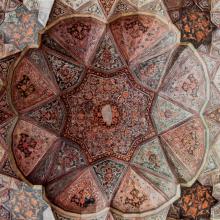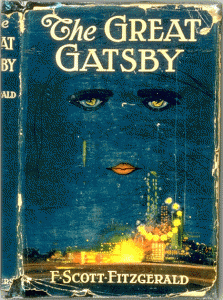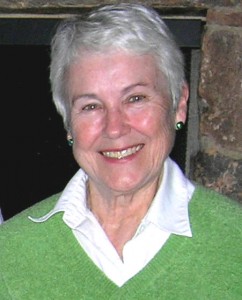poet
I was wrapping up some research in the Stuart A. Rose Manuscript, Archives, and Rare Book Library at Emory University when I requested a box of Lucille Clifton’s personal writings. I had not come to study Clifton. I was researching anti-lynching activism in Georgia, specifically a 1936 lynching photograph. But by the end of the week, I began turning to Clifton’s personal writing as an oasis. “Resolve to try to fear less and trust more and be healthy,” she wrote in her red Writer’s Digest Daily Diary on December 31, 1979. Clifton was a published children’s book author, memoirist, activist, and the poet laureate of Maryland when she wrote those words. She was also 43, the same age I was that September day. Her body of work, which includes Two-Headed Woman and Blessing the Boats, crossed oceans, told family stories, and revealed both the sting of injustice and the heart of what’s holy.
The day after Clifton resolved to “fear less and trust more and be healthy,” she wrote in her journal that she returned to a house with “no central heat; bad plumbing; and foreclosure.” A few weeks later, the house was auctioned off to the highest bidder. She sat down and wrote something anyway.
HISTORY HAS PAID personal attention to Lawrence Joseph, a Maronite Catholic from Detroit. In 1967, when Joseph was 19 and just finished with his freshman year at the University of Michigan, his father’s grocery-liquor store was looted and burned during the Detroit Rebellion. The five-day uprising of Black people reacting in part to police abuse and brutality and its fierce suppression by law enforcement and the National Guard made him “acutely conscious of America’s deeply systemic violence.”
Joseph, a poet who was also a lawyer who taught at St. John’s University in Queens, N.Y., and at Princeton, was living a block from the World Trade Center in 2001 when the two planes attacked. He and his wife had to evacuate their apartment. It was weeks before they could return. In the title poem of his 2017 volume So Where Are We?, Joseph writes:
flailing bodies in midair—
the neighborhood under thick gray powder—
on every screen. I don’t know
where you are, I don’t know what
I’m going to do, I heard a man say;
the man who had spoken was myself.
CAROLYN FORCHÉ’S story begins more than 40 years ago, when the then-27-year-old poet opens her apartment door in California to a stranger from El Salvador. Leonel Gómez Vides—“Leonel,” as she refers to him throughout her book—spends several days outlining the situation in his country and making his case for Forché to come witness the roots of a revolution.
That Forché accepts such a calling, from January 1978 through March 1980 and for more than 40 years beyond, attests not only to her grit but also to her belief in the sanctity of the human spirit and the power of truth.
An awakening usually connotes a positive state of consciousness, yet Forché’s experience calls her to a grim, nightmarish landscape. Once her plane touches down in Ilopango, El Salvador, she ventures into a world in which nearly one in 10 children dies before the age of 5 and 80 percent of the population has no running water, electricity, or sanitation. To read Forché’s rich prose is to travel alongside her through the jungle, where she learns to squat over open pits to relieve herself, and follow her into palatial, private quarters, where she washes away the filth of the road before meeting with the military and civic leaders who want her dead. Beyond the poverty, the country devolves into a hell wherein mutilated bodies appear in the streets and political prisoners are kept in small cages, like animals.

Image via Aleksandar Todorovic / Shutterstock
The great Old Testament scholar Walter Brueggemann once observed that when you look at the Hebrew prophets, you find almost all of them were poets. Not just preachers, but poets … poets who wrote with a prophetic imagination.
Poets don’t just say more words.
They imagine the world differently.
They imagine possibilities beyond others’ imagination.
They create a new way of seeing things.
They call a new creation into being.
TUVIA RUEBNER HAS earned the lament he wrote for King David, Israel’s better-known sorrow bearer. The poet came into the world 91 years ago in Pressburg-Bratislava, Slovakia, under Nazism’s shadow. It is a shadow he managed to separate himself from physically, but which sticks to him philosophically and is at the core of his poetry. The parched sound of random loss is the root sound in many of his poems. The spawn of an unimaginable yesterday, Tuvia Ruebner is more than anything a poet of today.
His parents, his grandparents, and his little sister Litzi all perished at Auschwitz in 1942, a year after he immigrated to British Mandate Palestine. Forty years after their deaths, Ruebner’s first son, Moran, was sent to fight in Israel’s first Lebanese war. Moran left for South America the following year, estranged from his country and its wars, and after a few letters, was never heard from again.
In Ruebner’s poem “[My father was murdered],” one by one he enumerates his losses:
When I heard the news I wept.
“Renowned Poet and Author Maya Angelou Dies at 86,” read the NBC News headline.
My fruitless effort to hold back tears was proven vain as I made my way into the bowels of a D.C. Metro station — tears streaming. I felt silly.
“Why am I crying,” I thought. “I didn’t know Maya Angelou.” I met her once, but she wasn’t family or a close friend, yet I was reacting with the same profound sense of loss, as if my own beloved great grandmother had passed?
The New York Times called her a “lyrical witness of the Jim Crow South” in the headline that announced Ms. Angelou’s death this morning. But for nearly four decades Dr. Maya Angelou served as a kind of great grandmother of the African-American community — a bridge between the ancestors and us.
Maya Angelou, a renowned author, poet and civil right activist, has died at 86. Angelou, know for her autobiography I Know Why the Caged Bird Sings, also authored six other autobiographies along with numerous collections of poems.
Throughout her career, Angelou she was active in the Civil Rights movement, working with Martin Luther King, Jr. and Malcolm X. She also served a one point as the Northern Coordinator for the Southern Christian Leadership Conference, a group founded following the Montgomery Bus Boycott by Dr. King and others.
NBC News reports her numerous achievements:
Angelou was born on April 4, 1928, in St. Louis, Missouri, under the name Marguerite Annie Johnson. She grew up to become a singer, dancer, actress, writer and Hollywood's first female black director.
Angelou had an impressive list of accolades: She was a three-time Grammy winner and was nominated for a Pulitzer, a Tony, an an Emmy for her role in the groundbreaking television mini-series "Roots."
I MEET Yehoshua November in an empty classroom in Touro College in Brooklyn, N.Y., where he teaches. The chairs and desks are piled to one side, like a barricade. We sit in a clearing beside the clutter, talking about his place as the only Hasidic poet—he is a 34-year-old member of the Lubavitch sect—on the American literary landscape, an entity ruled largely by secular academics far removed from the realities and sensibilities of ultra-orthodox Jewish observance and mysticism.
“They are the rabbis of poetry,” November laughs. He laughs so hard he doubles over in his chair. His laughter is as strange as it is infectious. Yet in all of God’s Optimism, his book that was short-listed for the 2010 LA Times Book Prize, there is not a single laugh line. His poems are serious, if lightly held narratives, some parable-like, most down to earth with a longing for heaven.
“Poetry is their vision of spirituality, their own religion, and they don’t want traditional religion brought in,” he says.
Even November’s long, reddish beard seems delighted at their rebellion against traditional religion. An antinomian Hasid and unashamed of it.
When I first read God’s Optimism, the poem I kept going back to was “Baal Teshuvas at the Mikvah” (baal teshuvas are secular Jews who return to religious observance), a poem of solidarity with those intimate others who came to Hasidism through the tunnel of the profane, commonly marked by drug use and sexual looseness, for the sake of spiritual passion held within a net of restrictions.
WHEN U.S. POET Laureate Natasha Trethewey visited my day job at historically black Kentucky State University, she cleared up a couple of things about the honors and duties of her position. First she noted that, unlike her British counterpart, she does not receive a free cask of wine as part of her payment. But that’s okay, she says, because, unlike laureates of old, she also does not have to compose made-to-order poems to the glory of The State. The State should also be relieved at that, because Trethewey’s poetry, while obsessed with history and written in a plain-spoken and accessible style, also habitually exposes profoundly unsettling truths about us and our past, especially regarding race.
From her first book, Domestic Work, focused on the lives of working-class African Americans in the South, to her most recent, Thrall, which deals with images of interracial relationships from the 17th century to the present, Trethewey has focused her keen verbal gifts on the most sensitive nerve in American life. Trethewey comes by these obsessions naturally. She is the daughter of a white man, Eric Trethewey, himself a poet of some renown, and a black woman, Gwendolyn Turnbough, who was murdered when Trethewey was in college. Trethewey was born and grew up as a mixed-race child on the Mississippi Gulf Coast in the late 1960s and ’70s.

Václav Havel during his speech at the Freedom and its adversaries conference held in Prague 2009. Via http://bit.ly/tTEMqp
Dissident has been defined as “one who challenges the established doctrine, a person who openly defies what has been set as standard or defined policy.”
Many would say that a dissident is the one who is the loudly clanging gong in a world already clamoring with dissonance, another voice we would simply like to be rid of or ignore.
For Vaclav Havel, it most certainly was not this way.
Yes, his words marked the world by challenging its mores. Moving people. Altering lives. Changing the world's map. All this was done with the engaging smoothness of a velvet approach. And this, among a host of many other attributes, will be why he will be so deeply missed and the loss of his life so greatly mourned.
The nation of Czechoslovakia has instated three days of national mourning for the man with the engaging smile. This time of imposed sadness – while a fitting tribute – does not seem nearly enough for a man who made it his purpose to reform hearts.
The Christian world is broad and spacious, and within its circumference, like a large bowl holding a variety of colorful fish, swim a surprisingly diverse spectrum of believers. The secular media mistakenly seem to view "the evangelical movement" as a sort of monolithic structure akin to a well fortified garrison ranged to repel the attacks of "liberals" or "progressives" or "mainline churches." Or a right-wing political force often equated with Republicanism.









